In the medical research context, we have clinical studies vs. observational studies: these are two different worlds that are at the same time dedicated to enhancing the stocks of human knowledge and helping create a better healthcare system. Both approaches help us learn various aspects of diseases and treatments as well as tendencies in the sphere of health.
Although they are research methods used in various research types, their rationale, conceptual framework, and data gathering are significantly different, as the cases below depict them in different capacities in the research world.
Clinical studies are well-planned studies that compare the effects, benefits, and risks of potential treatments such as medicines, operations, or other equipment. Randomization and control groups are hallmarks of this methodology. The structure ensures reliable results by minimizing bias and establishing causality.
For instance, a clinical study might use one drug and a placebo to measure the genuine efficacy of a new drug. This brings us to an important factor when comparing clinical studies and observational studies, and the latter focuses on cause and effect.
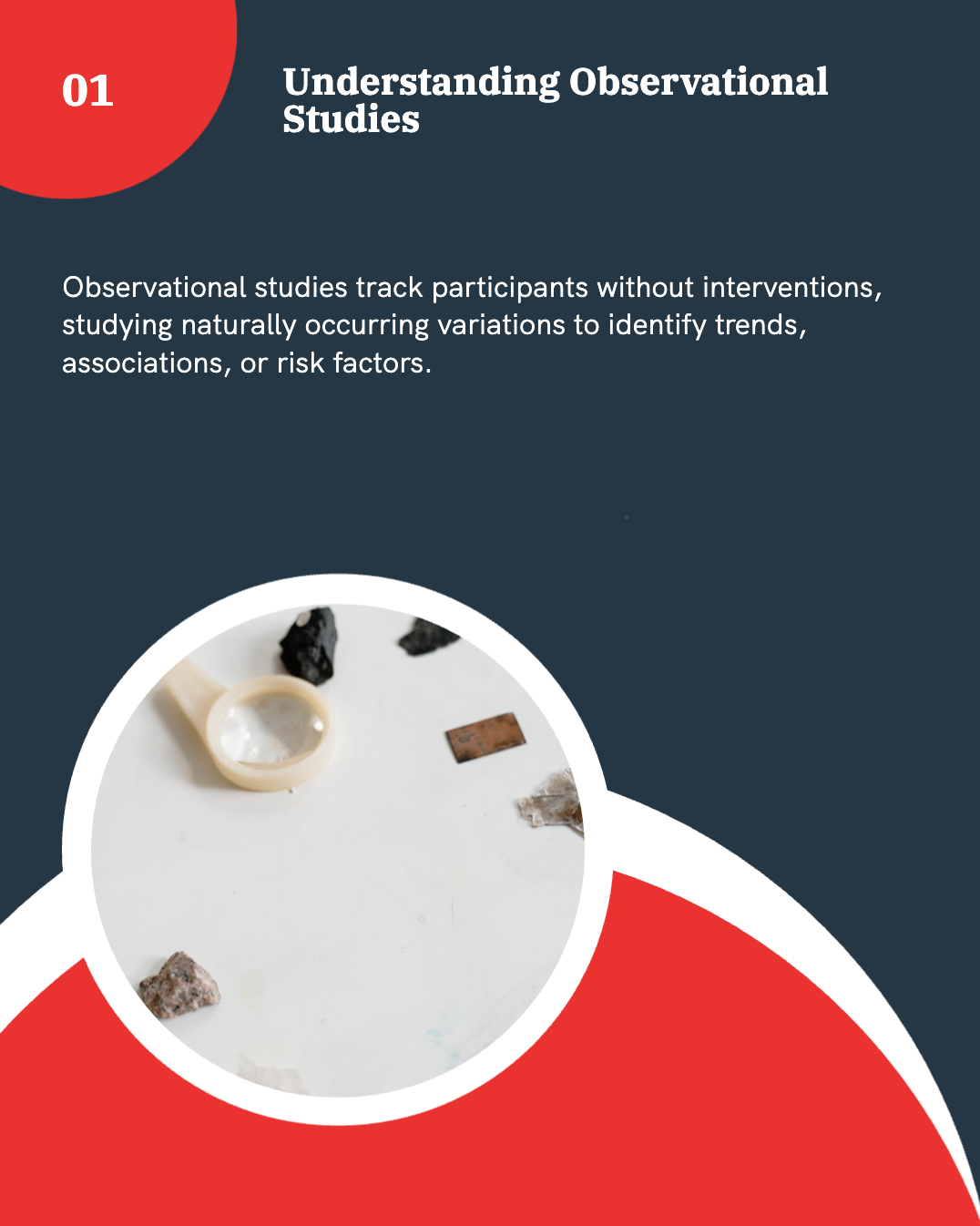
Unlike clinical studies, observational studies involve monitoring participants without introducing interventions. Researchers examine naturally occurring variations to identify trends, associations, or risk factors.
For example, an observational study could track dietary habits and their correlation with heart disease. This non-interventional nature is a fundamental difference between clinical studies vs. observational studies, as observational studies prioritize understanding natural behaviours and outcomes.
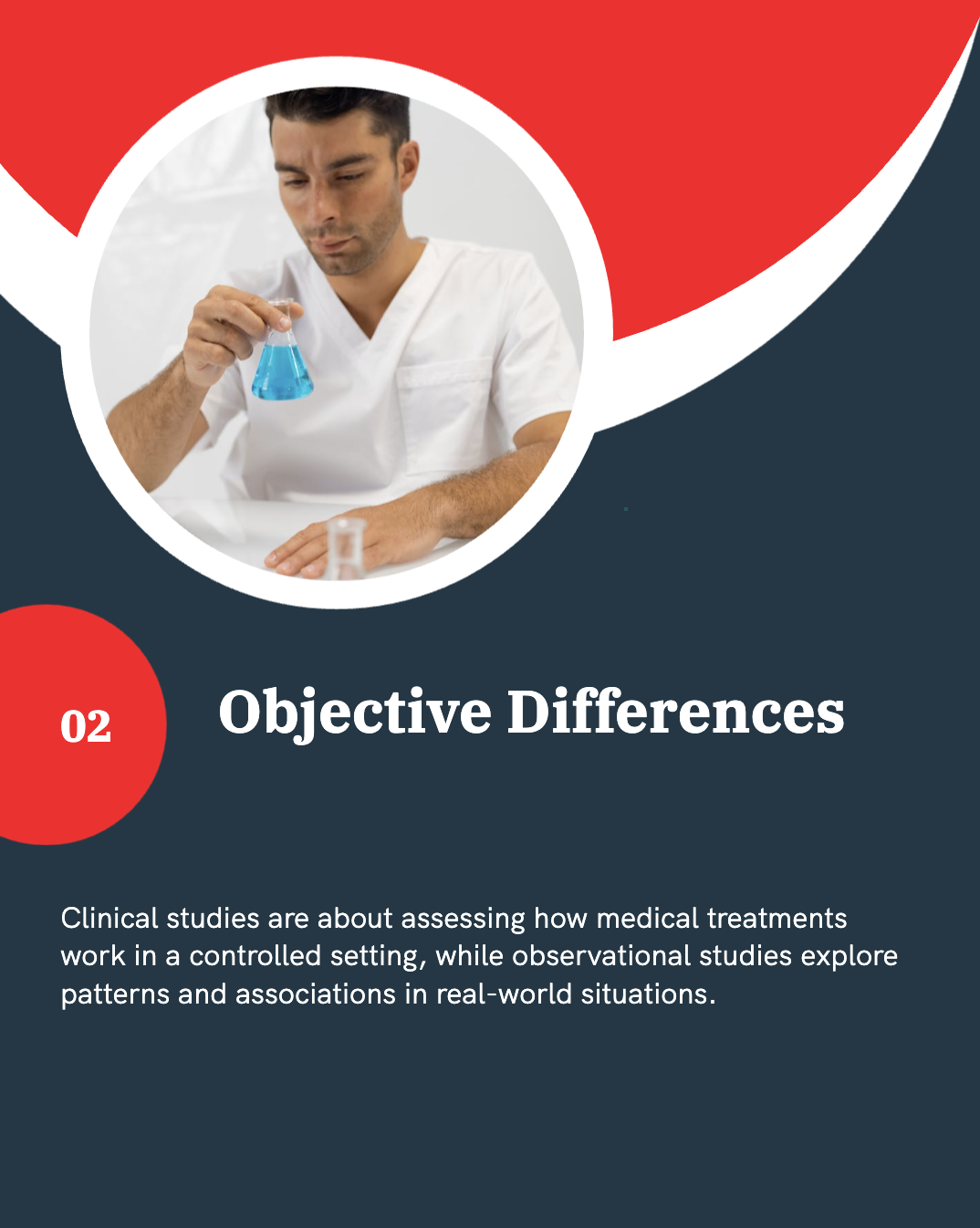
The major principle of categorization of research studies comes down to the sheer purpose of clinical studies vs. observational studies.
For example, while a randomized controlled study will assess the efficacy of a new cancer drug, an epidemiological observational type of study will compare the incidence rate of cancer against the level of pollution over time.
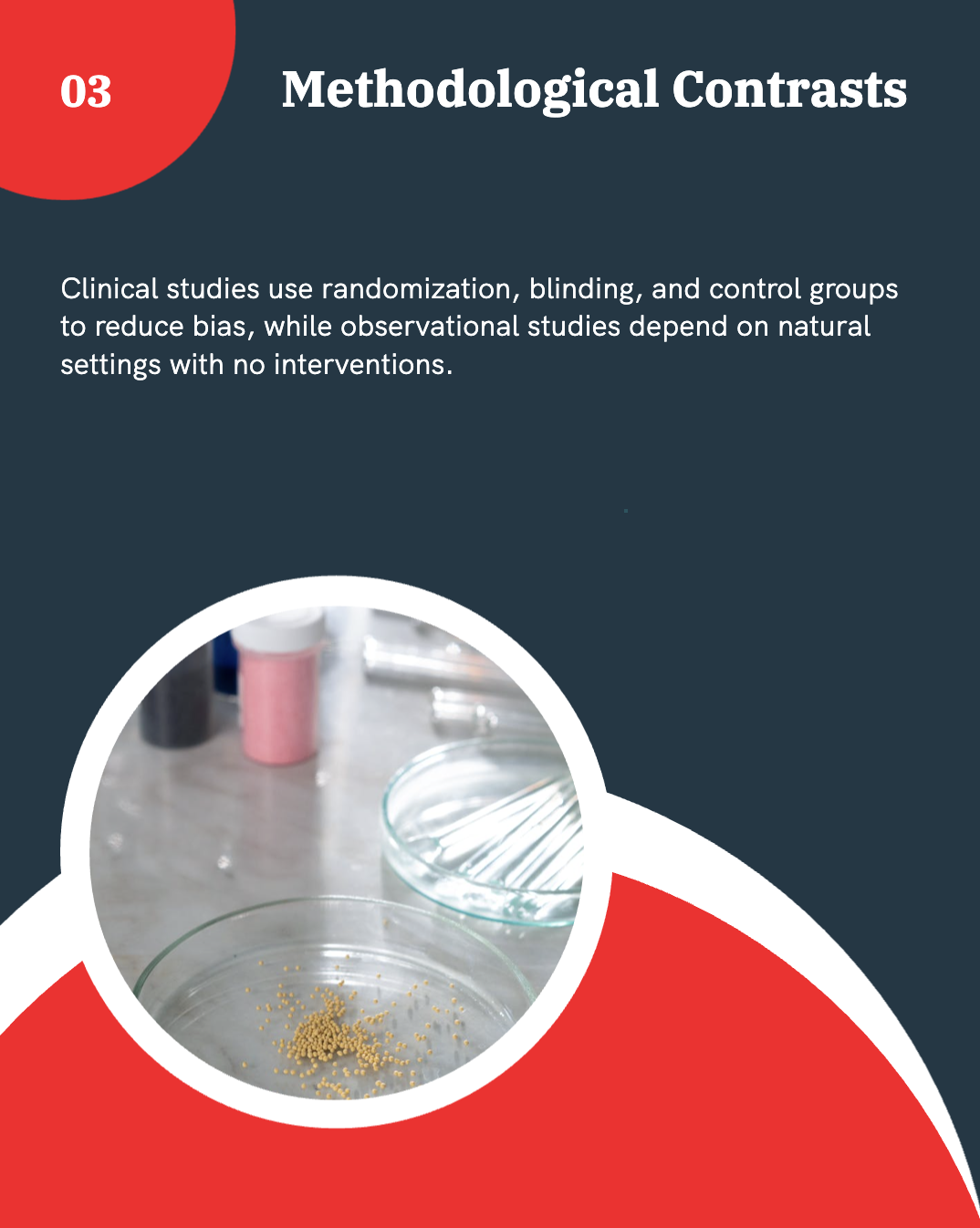
The methodologies of clinical studies vs. observational studies differ significantly:
These methodological distinctions make clinical studies more suitable for causality, and observational studies are better for identifying correlations.
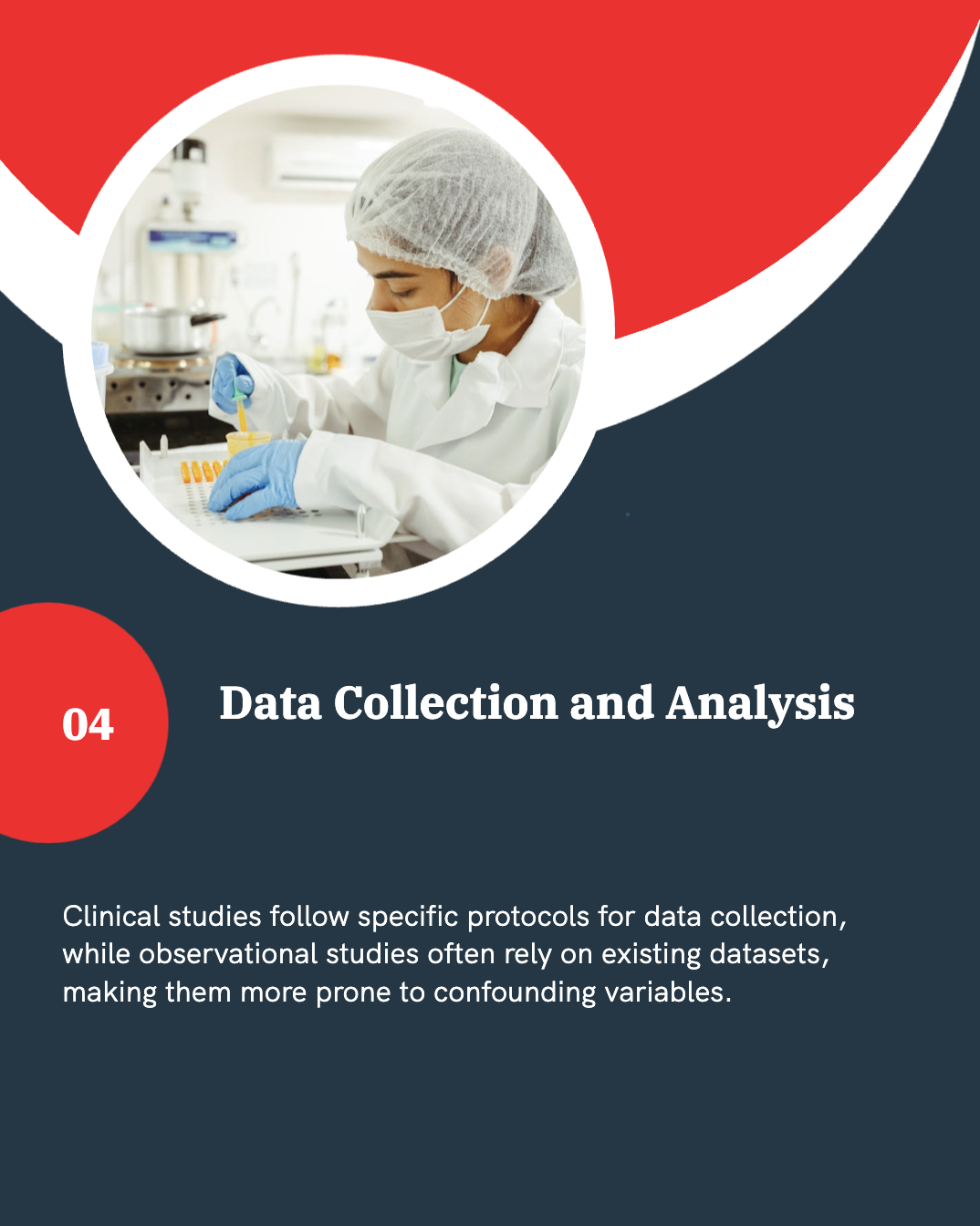
The process of data collection further differentiates clinical studies vs. observational studies.
For example, an observational study exploring obesity might struggle to account for variables like physical activity, whereas a clinical study testing a weight-loss drug controls for such factors.
Both methodologies must navigate ethical challenges, though the nature of these challenges differs between clinical studies and observational studies.
These ethical dimensions emphasize the need for transparency and participant welfare in both research types.
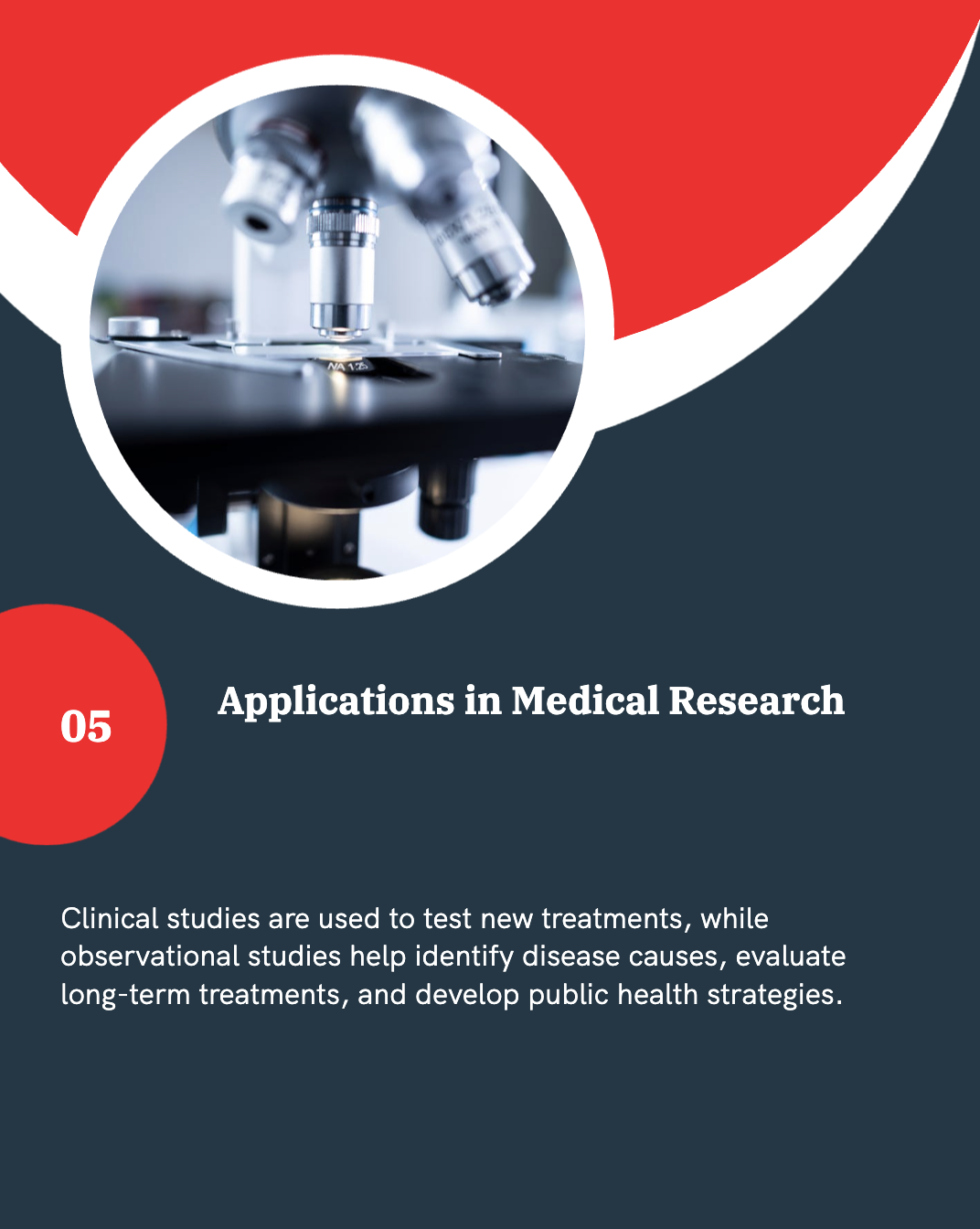
The contrasting roles of clinical studies vs. observational studies become evident in their applications:
For instance, randomized clinical studies were essential in the quick development of COVID-19 vaccines, but real-world efficacy and refusal studies here were based on observational analyses.
When analyzing clinical studies vs. observational studies, their strengths and limitations become apparent:
These complementary strengths highlight their combined value in comprehensive research strategies.
Consider two landmark studies:
These examples illustrate the diverse contributions of clinical studies vs. observational studies to medical advancements.
Technology is transforming both methodologies, narrowing the gap in certain areas. Digital tools, such as wearable devices and apps, enable real-time data collection for both clinical studies and observational studies.
Moreover, hybrid designs that combine elements of both methodologies are emerging, addressing complex research questions effectively. These advancements underscore the evolving nature of clinical studies vs. observational studies.
Whether clinical studies or observational studies should be used in a particular research setting depends on the question posed. Although clinical studies are most suitable for comparative tests on interventions, observational studies are most appropriate for investigating patterns and long-term consequences.
For instance, a scientist who is interested in noting the short-term effects of a newly developed vaccine would employ the clinical study, but the same scientist looking at the long-term effects of the vaccine will use an observational study. This lobbying reinforces the features of the clinical studies compared to the observational studies.
Understanding the differences between clinical studies vs. observational studies is crucial for interpreting medical research and advancing scientific knowledge. Clinical studies prioritize causation through controlled experiments, while observational studies excel at identifying real-world patterns and associations.
Both methodologies are indispensable, offering unique strengths and addressing distinct challenges. By leveraging their complementary nature, researchers can develop a holistic understanding of health and disease, improving outcomes for individuals and communities worldwide.
 24.01.2025
24.01.2025